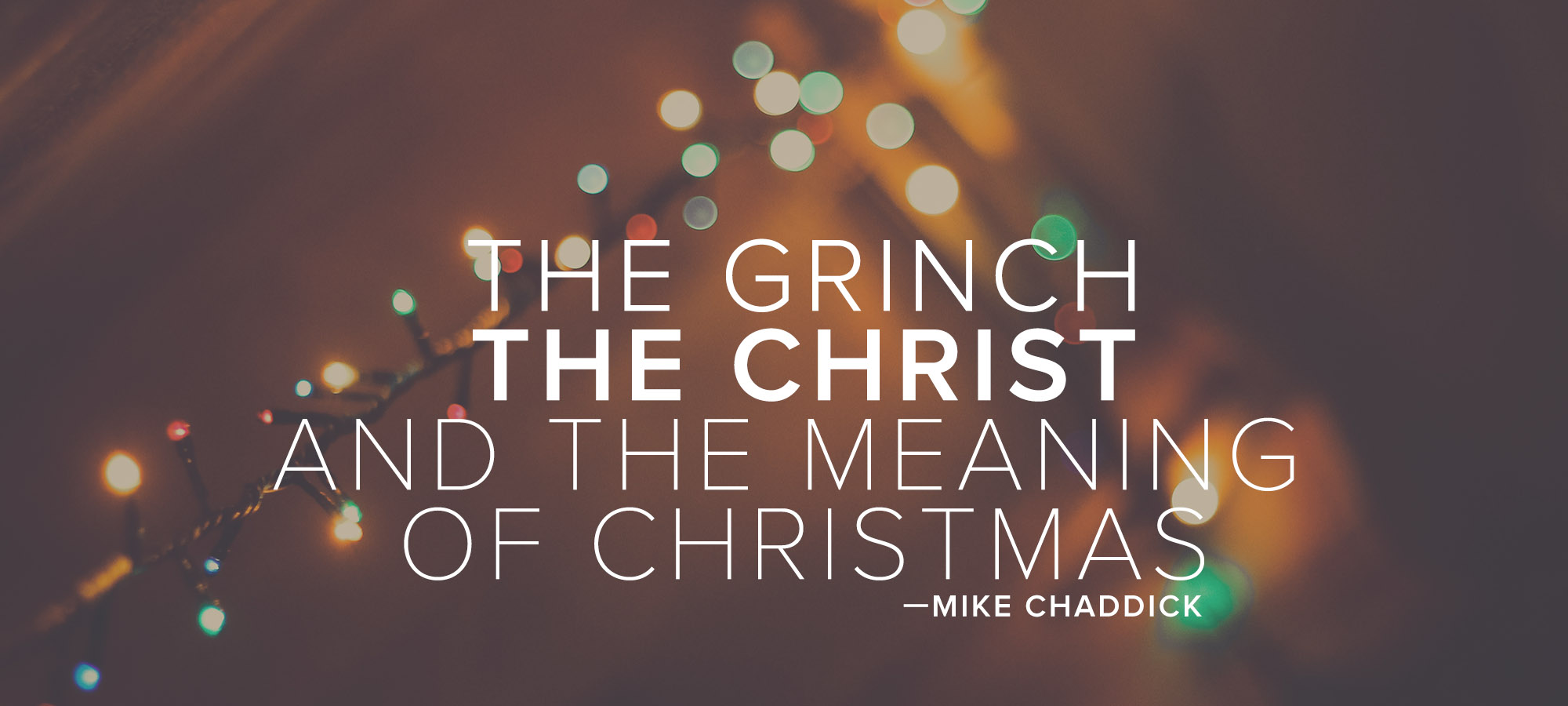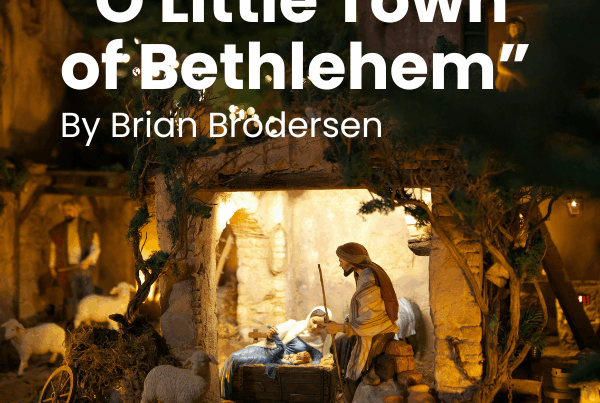
“For unto us a Child is born, unto us a Son is given; and the government will be upon His shoulder. And His name will be called Wonderful, Counselor, Mighty God, Everlasting Father, Prince of Peace. Of the increase of His government and peace There will be no end, upon the throne of David and over His kingdom, to order it and establish it with judgment and justice from that time forward, even forever. The zeal of the Lord of hosts will perform this” (Isaiah 9:6-7).
The Grinch’s Epiphany:
But the sound wasn’t sad!
Why, this sound was merry!
It couldn’t be so!
But it WAS merry! Very!
He stared down at Who-ville!
The Grinch popped his eyes!
Then he shook!
What he saw was a shocking surprise!
Every Who down in Who-ville, the tall and the small,
Was singing! Without any presents at all!
He HADN’T stopped Christmas from coming!
IT CAME!
Somehow or other, it came just the same!
And the Grinch, with his grinch-feet ice-cold in the snow,
Stood puzzling and puzzling: “How could it be so?
“It came without ribbons! It came without tags!
“It came without packages, boxes or bags!”
And he puzzled three hours, till his puzzler was sore.
Then the Grinch thought of something he hadn’t before!
“Maybe Christmas,” he thought, “doesn’t come from a store.
“Maybe Christmas… perhaps… means a little bit more!” – Dr. Suess
As the Grinch acknowledged, Christmas has meaning beyond the mere gifts and celebratory rituals that it often involves.
But what is that meaning?
Christmas often becomes a time when we all slow down, but only after we’ve first sped up. We might receive some time off work, reflect on the present state of our relationships, and in general, take an inventory of our lives. And quite often, perhaps in the vast majority of cases, we reflect on our temporal circumstances. We reflect even more deeply on our singleness if we are unmarried or our marriage if married. The pain and difficulty of estranged children, parents and other relatives intensifies. We reflect on the current state of our profession and what it means to adequately or inadequately provide for our families through it, and whether or not our current vocations truly suits our God-given gifts. We reflect on the loved ones we have lost and can no longer share a Christmas with. As parents, we may reflect on the gifts we are able or unable to give to our children. But none of this is what Christmas is truly about.
There are, in fact, different levels of meaning to Christmas. The first level of meaning is the materialistic one. It says that meaning is found in the buying and receiving of stuff. The second level, which is a little bit closer, which the Grinch was onto, is the relational one. This says that meaning is found in my relationships to other people, family and friends in particular. But the third level is the one that we are called to receive, guard and pass on as Christians, and that is the spiritual one. This says that meaning is found in my relationship to God, who is, in fact, the source of both relationships and material gifts.
The Good News of Christmas is not about our outward circumstances. In fact, the Christmas story itself is set within the kind of outward circumstances that one might call “a bad Christmas experience.” Think for a moment. On the eve of Christmas, Jesus’ parents were about to get a divorce. They had to move while Mary was nine months pregnant to a place where they had no home and ended up staying and giving birth in an animal shelter. There was no midwife or doctor. Hardly anyone celebrated Jesus’ birth, save for some strangers. And almost immediately, they had to pack up and flee for their lives, as the ruling political authority wanted to kill their Child, thus forcing them to migrate to a foreign country to avoid persecution.
Outwardly, there is nothing in this story that we could envy for ourselves. And yet, this is THE Christmas story. A “good Christmas” is not defined by our singleness or our marriages, it is not measured by the presence or loss of family members, it is not measured by how much money we make, or how much we like our jobs, it is not defined by our friends, or our enemies, nor how many presents are under the tree.
Rather, a “good Christmas” is defined by our capacity to grasp the nearness of God in our lives.
Not despite difficult circumstances, but because of them. A “good Christmas” is one that is formed by and conformed to the story of Jesus Christ. A “good Christmas” is defined by our actual practice of focusing on the fact that the God who made the world, the God who made you, loves you, lived for you and died for you, has come as close as close could be into our world. A “good Christmas” is defined by our recognition that God is not only our distant creator, but our present sustainer and precious redeemer.
What you do, how you do it and why you do it, all contribute to forming who you are as a human being, who you are as a family, who we are as a church and who we are as a nation.
So, receive the Gift of Meaning this Christmas, and pass it on as a gift to someone else.






